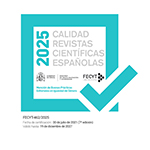La huella de Boccaccio en el Renacimiento español y la recepción de "Le piacevoli notti" de Straparola
Abstract
Boccaccio and Straparola’s italian short novels translated into Castilian were successfully accepted in the Golden Age literature and theater; their translators adapted them according to their country’s cultural background. The translations of the Decameron and Le piacevoli notti resemble in many places, as in obscene subject amendments or in new textual elements introductions; we notice Truchado’s intention to get away from the control, hiding banned issues like magic (for example in the tropelías) and erotic innuendo (as in the riddles).Downloads
Article download
License
In order to support the global exchange of knowledge, the journal Dicenda. Cuadernos de Filología Hispánica is allowing unrestricted access to its content as from its publication in this electronic edition, and as such it is an open-access journal. The originals published in this journal are the property of the Complutense University of Madrid and any reproduction thereof in full or in part must cite the source. All content is distributed under a Creative Commons Attribution 4.0 use and distribution licence (CC BY 4.0). This circumstance must be expressly stated in these terms where necessary. You can view the summary and the complete legal text of the licence.









